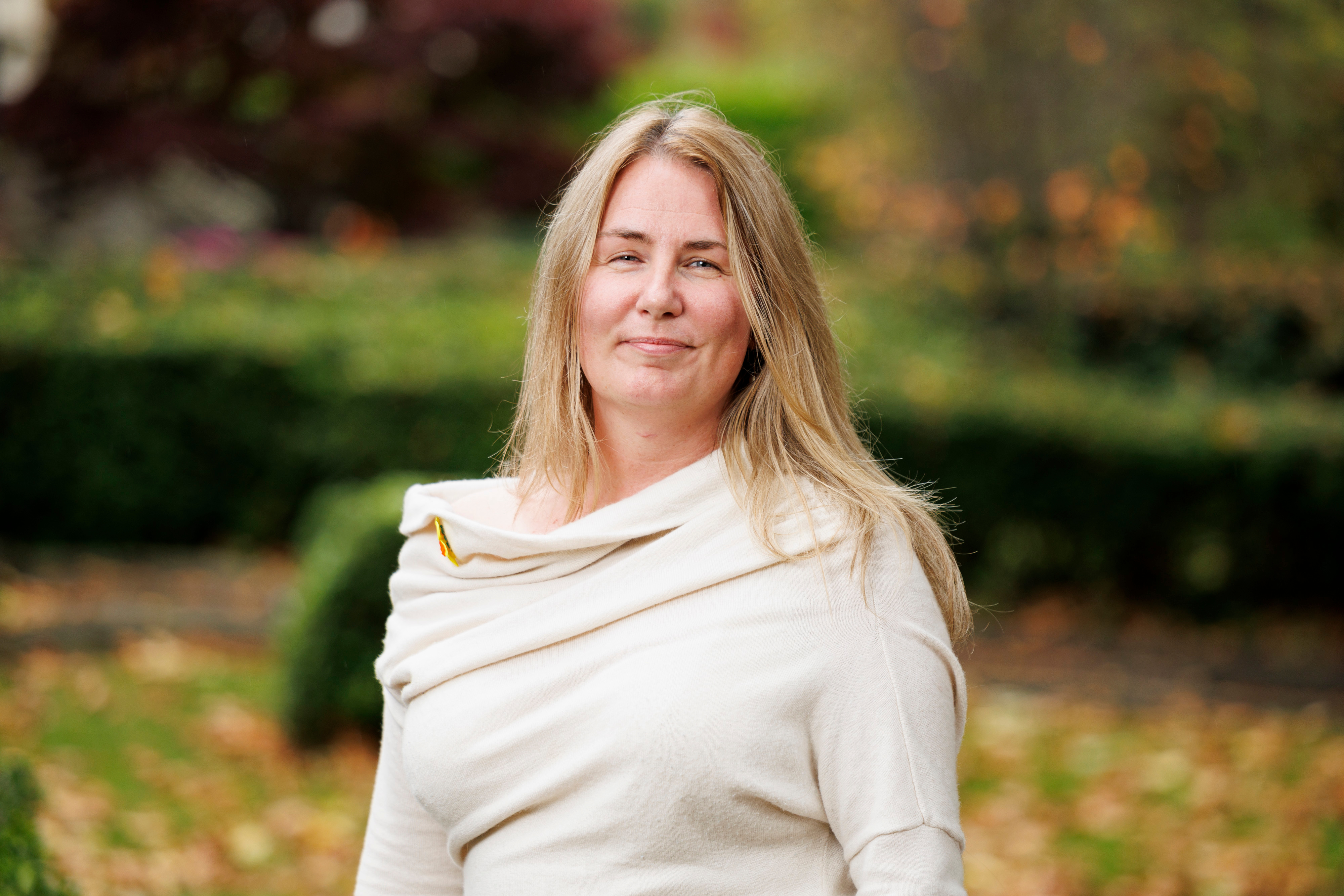Dr Rosie O'Shea's Cancer Researcher Story
“It's challenging for patients from high-risk families with an inherited cancer to have to wait two years to access genetic counselling.”

Dr Rosie O’Shea is a Principal Genetic Counsellor in the Cancer Genetic Service in St James’s Hospital, Dublin. She is currently working on an Irish Cancer Society-funded research project where a digital platform is being used to improve access to cascade genetic testing for people with a risk of gynaecological cancer.
“There’s a two-year wait currently for a patient from high-risk families in the public system to access cascade genetic testing,” says Dr O’Shea, who is from Glenbeigh, Co. Kerry.
“When we find that a patient has an inherited cancer gene, like BRCA or Lynch Syndrome, the patient’s siblings, parents and children have a 50% chance of having it too.
“The aim of this project is to give the patient all the information they need through this digital platform. It gives them the opportunity to access the educational aspect of pre-test genetic counselling, like understanding what genes are, how genes are inherited, the health implications of them, and the risk of cancer.
“Using a digital platform can reduce a patient’s two-year waiting time to six months to a year. It’s allowing the patient to get access to the educational content needed in pre-test genetic counselling to help them make an informed genetic testing decision. Our study will assess if this alternative is acceptable to the patient.”
In November 2024, Dr O’Shea won a Research Networking Award to host the first International Cancer Genetic Counselling Conference and is passionate about the role that genetic counsellors play in cancer prevention.
“Our role is to guide people who have cancer through genetic testing to see if they have an inherited form of cancer,” she explains. “If they do, their family members may also have a higher risk of developing cancer and, if they know there’s an inherited risk, we can help those who do not have cancer to engage in cancer prevention and screening to reduce their risk.
“It’s a way of preventing cancer,” adds Dr O’Shea, who is also an Adjunct Assistant Professor in Genetic Counselling in Trinity College Dublin. “We also help to guide people through genetic testing with counselling support, because it’s not just themselves they’re worried about, it’s their family as well.”
Dr O’Shea sees the platform that she’s developing as a way to help to ease the pressure and stress on people waiting for genetic counselling, with the hope that it will also mean an inherited cancer risk is found quickly enough to prevent cancer from developing in the patient’s family members.
“I’ve identified people who have been on the waiting list for genetic counselling and during that time developed cancer, and we could’ve prevented it if they’d been seen quicker.”
“If someone is identified as being at an inherited risk of developing a gynaecological cancer, they can have a hysterectomy or ovary removal, reducing the risk of this cancer.
“But we need to be able to test them to confirm that they have the inherited gene before that can be done. If they have to wait two years for testing, there’s a risk the cancer could develop by then.”
Having personal experience of family members who have developed cancer is one of the motivations that led to Dr O’Shea working in cancer research, and she is a strong advocate for the use of genetic testing as a tool in preventing the development of inherited cancers.
“I have my own personal experience of family members who have had cancer, so I see and understand it from a human perspective,” she says. “I want to ensure we can reduce the risk for people with an inherited cancer predisposition to developing certain cancers.
“We want to make sure that patients can make value-based decisions that suit their lives and their families’ needs, and that they can live long lives and not die young because of an inherited form of cancer.”
